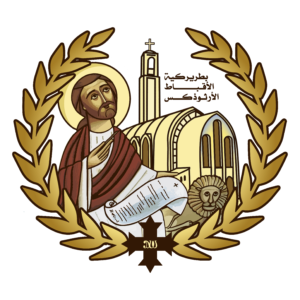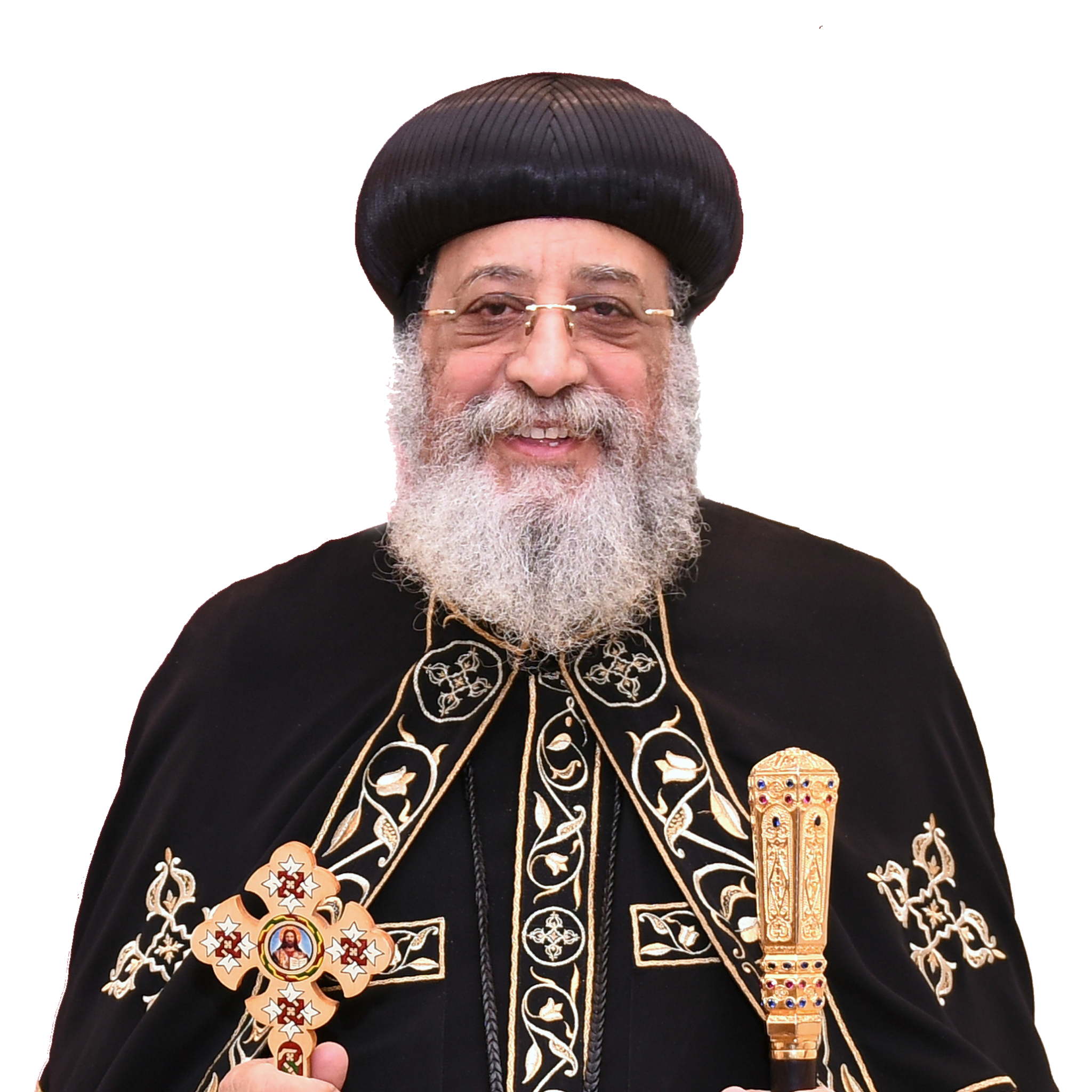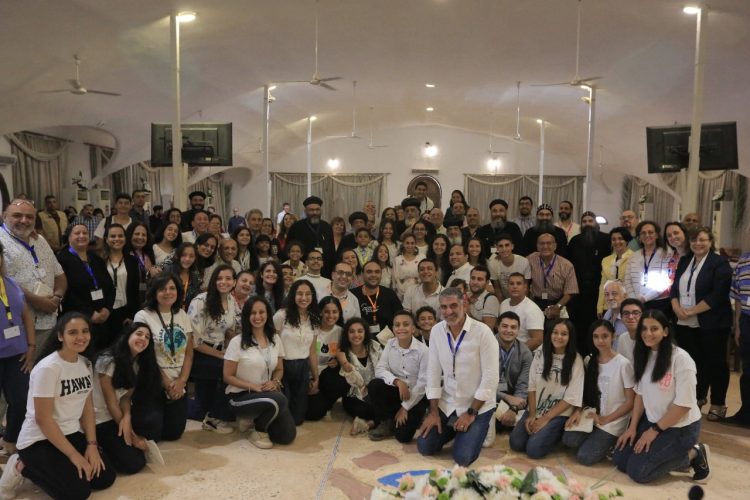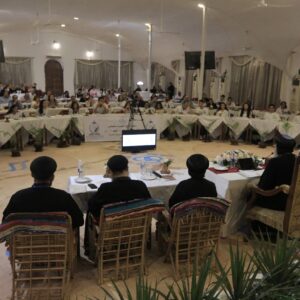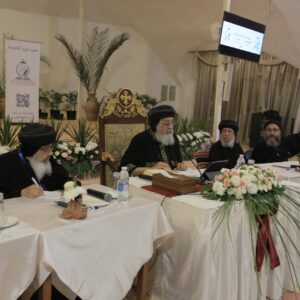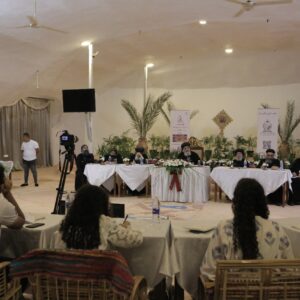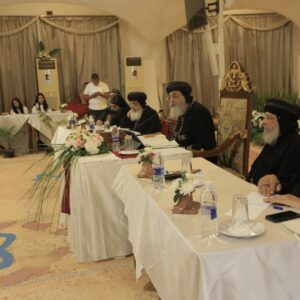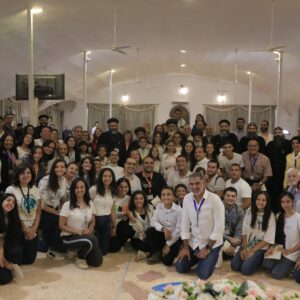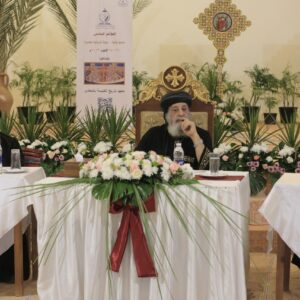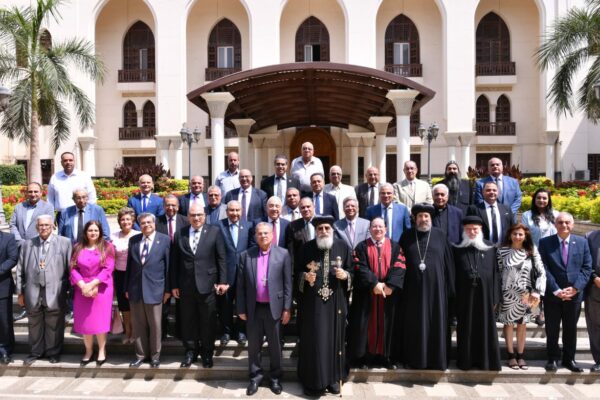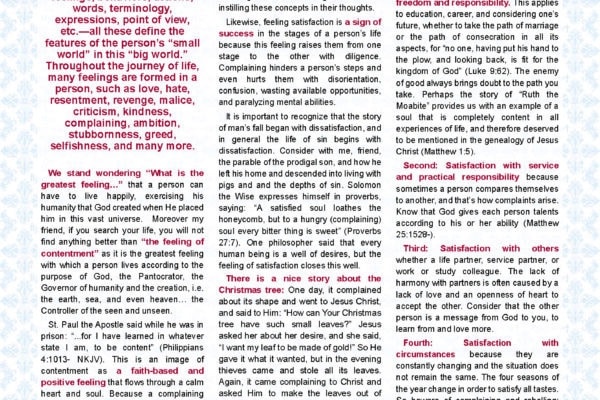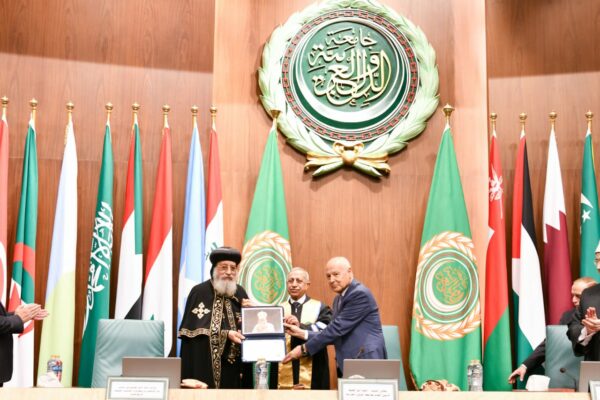Today, Friday, His Holiness Pope Tawadros II witnessed part of the sixth conference of the Institute of Church History of the Diocese of Maadi, which began its work yesterday at the Anafora Conference House, under the title “The Council of Nicaea… A Contemporary Historical Vision,” in the presence of H.E. Metropolitan Daniel, Metropolitan of Maadi and the Secretary of the Council, H.E. Metropolitan Tomas, Metropolitan of Qusiyyah & Mir.
This comes within the framework of His Holiness’ encouragement of church studies in support of the educational and pastoral work of the Church.
His Holiness the Pope delivered a lecture at the conference, at the beginning of which H.H. read part of the first letter of our teacher John: “By this we know that we love the children of God, when we love God and keep His commandments. For this is the love of God, that we keep His commandments. And His commandments are not burdensome. For whatever is born of God overcomes the world. And this is the victory that has overcome the world—our faith. Who is he who overcomes the world, but he who believes that Jesus is the Son of God?”
(I John 5:2-5)
His Holiness expressed his happiness at participating in this conference, noting that the Church remained one until the middle of the fifth century AD, and signs of the Church’s unity were clearly visible in the three ecumenical councils.
His Holiness mentioned that the meeting of the bishops of the world in councils to study issues of faith, formulate a unified vision, and make a decision binding on all was a creative idea.
His Holiness pointed out that in the period between the years 284 AD and 326 AD, some people appeared who had a great influence on the future of the Church.
1- Arius prevaricator
1- The Venerable Pope Alexandros
3- Emperor Constantine the Great
4- Pope Athanasius the Strong
His Holiness was also keen to know about some of the conference’s activities.
This page is also available in:
العربية
